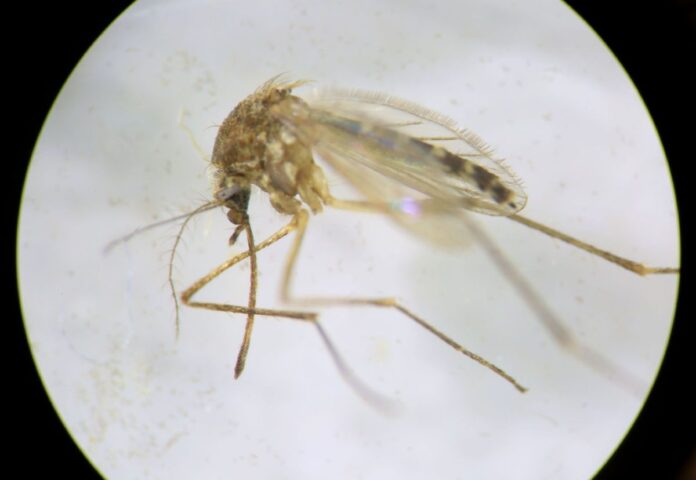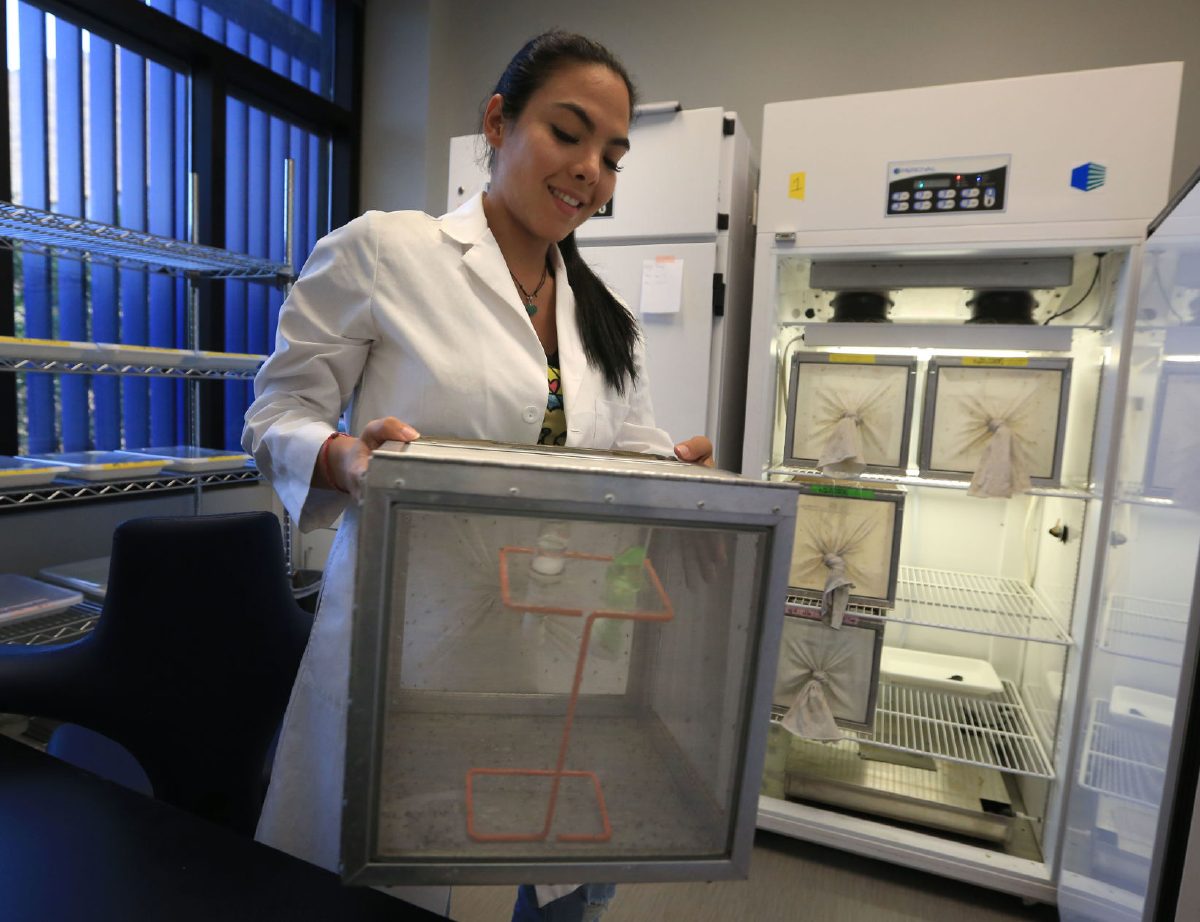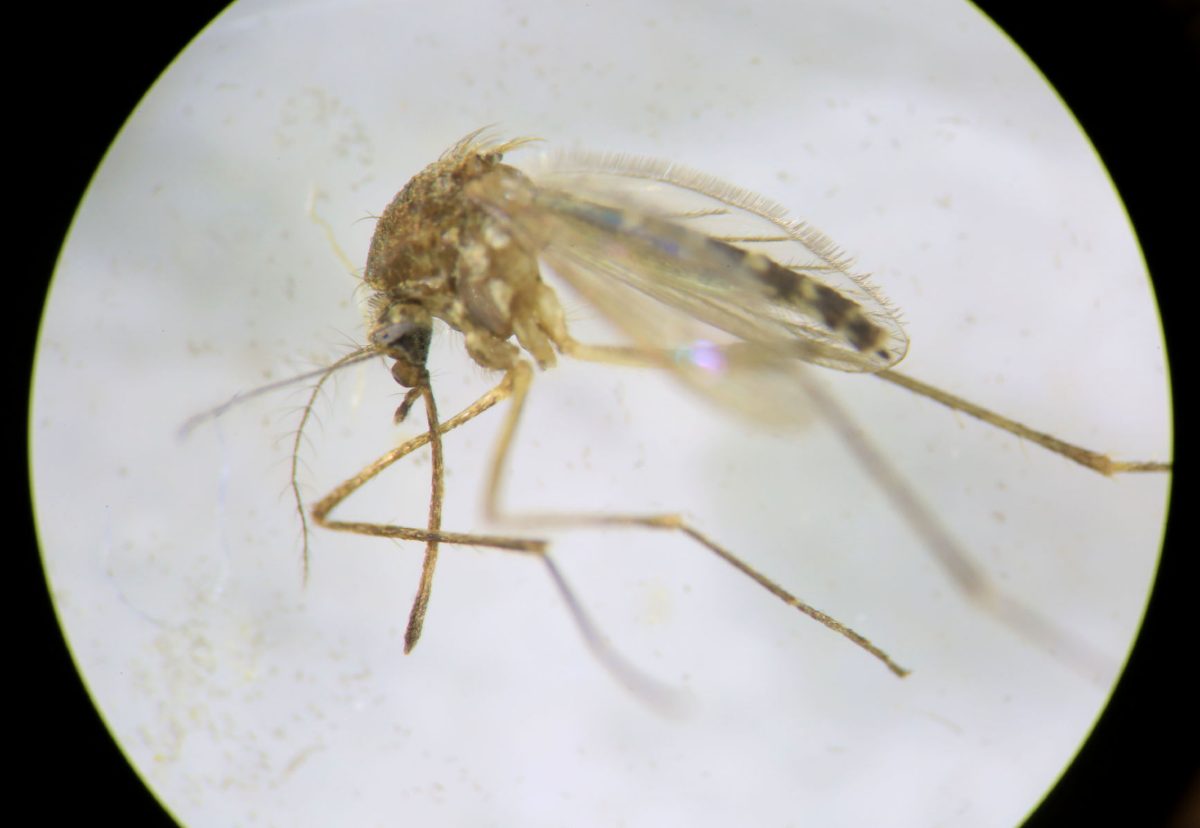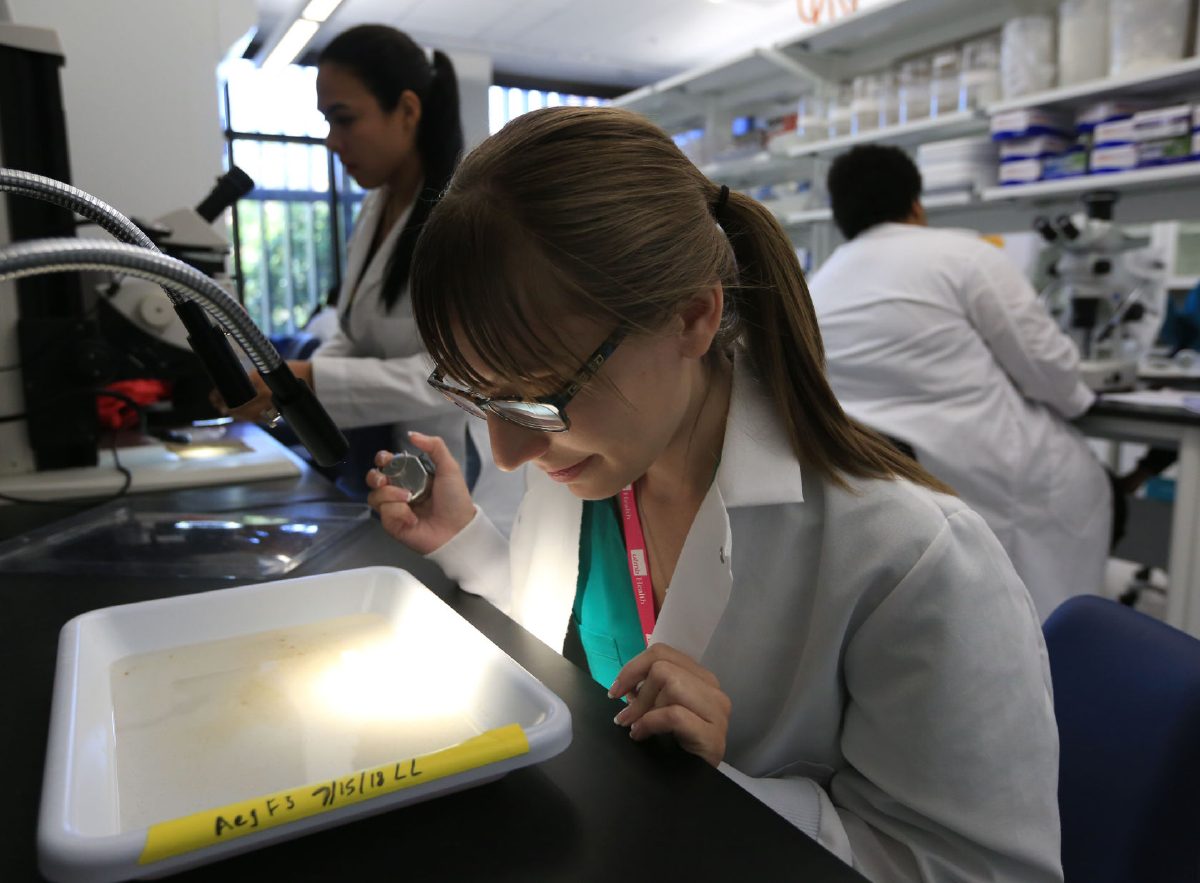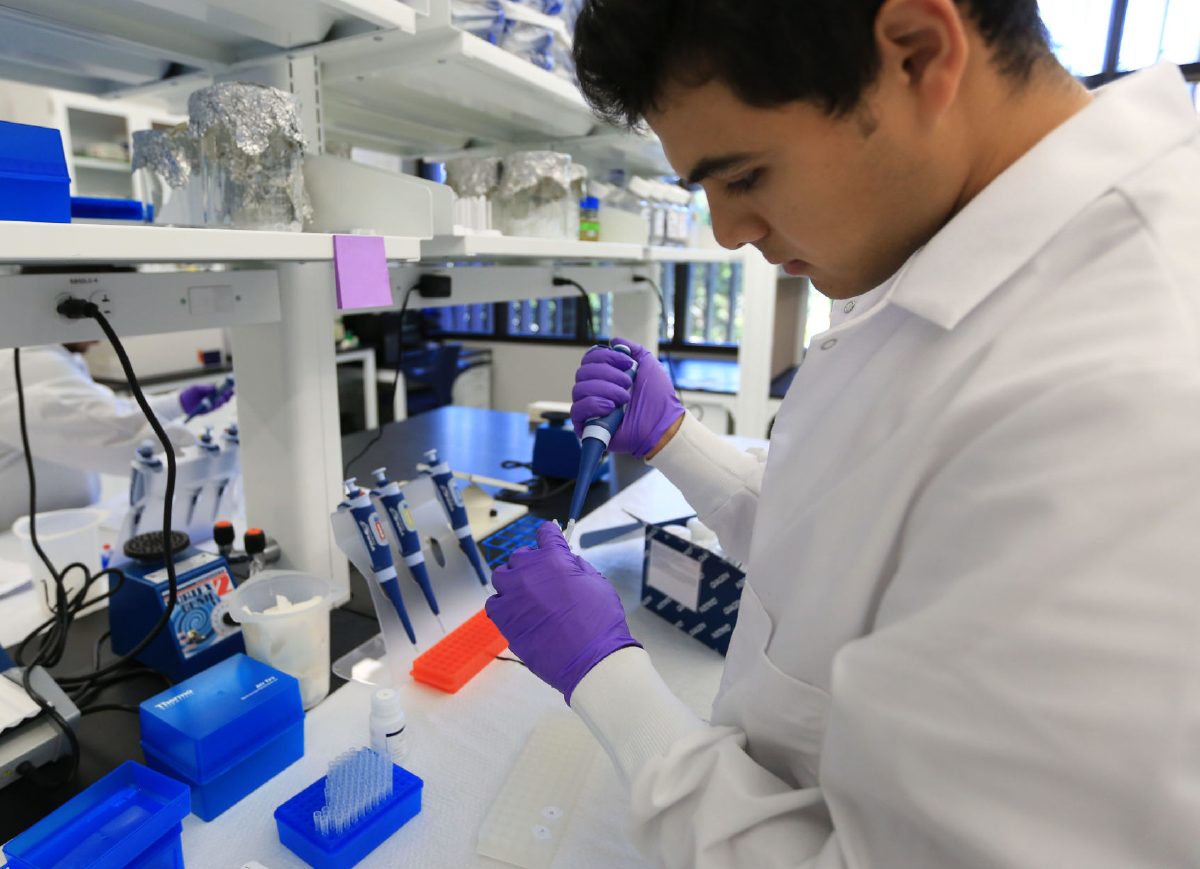EDINBURG — Keeping count of mosquito eggs, tracking larvae stages, testing results of commonly used pesticides and collecting data on the effects of a virus such as Zika on living creatures, among other tasks, has students and professors busy at the University of Texas Rio Grande Valley.
The team of researchers led by Dr. Christopher Vitek and Dr. John Thomas, spends countless hours at UTRGV’s laboratories tying to better understand the threat of the mosquito-borne Zika virus.
On one side of the laboratory Vitek, whose expertise focuses on ecology and medical entomology, leads a team of student researchers who analyze the development and effects of the virus in certain type of mosquitoes found in the region.
Thomas, who has a background in viral pathogenesis and vaccine design, leads a team that mainly focuses on testing the effects of the virus in animals with similar immune systems as humans, such as opossums, to figure out what could be the short and long-term effects of contracting the virus directly or through the mother.
“What we do is we look to see, ‘Does the virus affect the growth of the opossum? Are there abnormalities in the brain?” Thomas explained. “We’ve already seen that the virus can have effects in the development… (Zika) is one of those viruses that needs to replicate in a brain, it needs to replicate in a central-neuro system. It is very hard for it to be studied it in the lab because it doesn’t replicate very well in self-culture, in a tissue, in a flask, so we need to use an animal model.”
On Tuesday, both Vitek and Thomas opened the doors of their labs to state Rep. Bobby Guerra, D-Mission, and his team, who wanted to learn about the research being conducted in the area.
“The Rio Grande Valley is at the forefront of the concern of Zika in Texas because of our geographic location and also our proximity obviously to the river,” Guerra said. “So it’s important to see what research is being done by the university in this regard, we are getting ahead of the game.”
As part of the Valley legislative delegation, Guerra said he and other representatives worry not only about the Valley but the entire state when it comes to threats such as this virus and finding solutions to combat it.
During the last legislative session Guerra was one of five representatives — including Oscar Longoria, D-Mission; John Zerwas, R-Richmond; J.M. Lozano, R-Kingsville; and J.D. Sheffield, R-Gatesville — to co-author House Bill 3576, which aims to improve collection of data about the virus. The legislation authorized the release of a person’s medical or epidemiological information if there are signs that the person’s health was compromised due to exposure to a communicable disease, including the Zika virus, to an appropriate federal agency.
The information that must be released includes name, address, sex, race and occupation of the person, as well as the date when the virus could have been contracted, probable source of exposure, and other requested information related to the exposure.
The bill, which became effective in September of 2017, also calls for the Department of State Health Services to “investigate the causes and effects of communicable diseases and methods of prevention,” it states.
At UTRGV on Tuesday, Guerra had the opportunity to see students’ hands-on work and ask about local efforts that are also tied to statewide and even nationwide preventive methods and other research.
“The reports that we get, we ultimately send them to the state level to let them know what is working down here and what isn’t and then we also work with the (Centers for Disease Control and Prevention) and provide the information to them,” Vitek said.
This year UTRGV also announced the creation of the Center for Vector-Borne Disease, which is a collaboration-based center aimed at inviting different university departments, researchers, students and outside partners to research different aspects of human illnesses caused by viruses, bacteria or parasites transmitted through insects such as mosquitos.
This center is also led by Thomas and Vitek, who are part of the founding members along with Dr. Teresa Patricia Feria Arroyo, associate professor of biology; Dr. Beatriz Tapia, assistant dean for faculty development for the UTRGV School of Medicine; Dr. Tamer Oraby, assistant professor of mathematical and statistical science; and Dr. Erin Schuenzel, associate professor of biology.
With recent rains that left many neighborhoods with puddles or other water-retaining zones capable of breeding mosquitoes that could carry such viruses, the threat of Zika has to remain a focus, Guerra said.
“We want to make sure that if we are going to have any Zika type issues that we are ahead of the game and that we are prepared,” Guerra said. “It’s a matter of being proactive, not reactive… we are taking steps, but we have further to go. But you all saw here first-hand what this fine university is doing in assisting in that research, and that’s so, so important because research is how we are going to get ahead of the game.”

